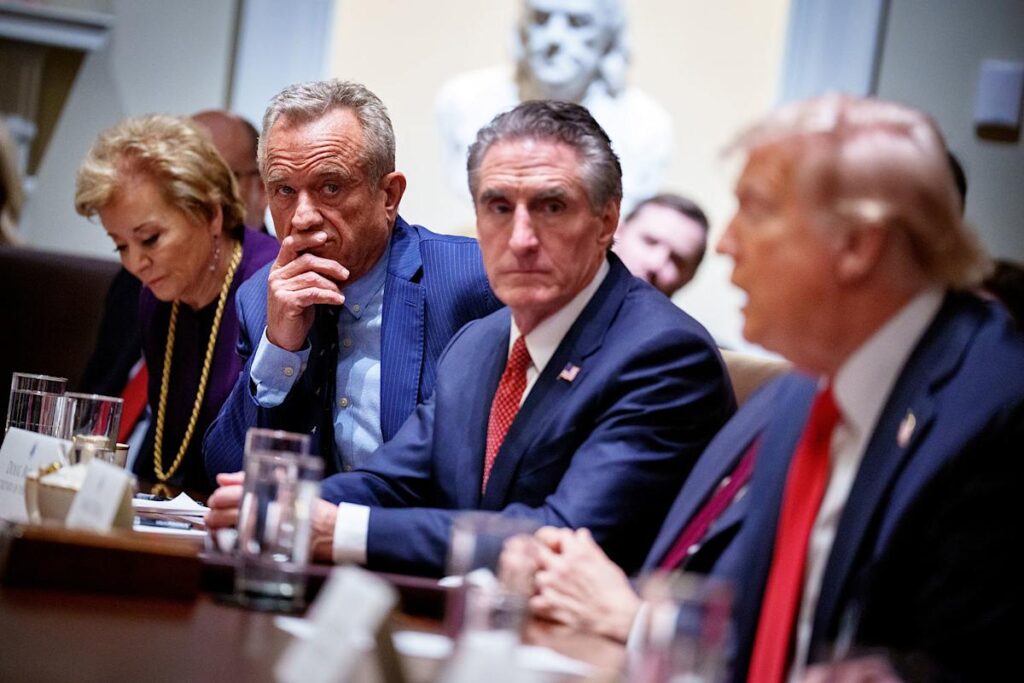Earlier this month, Health and Human Services Secretary Robert F. Kennedy Jr. sat down with CBS News, which asked some questions that the conspiracy theorist probably should’ve seen coming. CBS News chief medical correspondent Dr. Jon LaPook, for example, asked the secretary whether he approved the HHS cuts that helped states address infectious disease, mental health, addiction and childhood vaccination.
“No, I’m not familiar with those cuts,” Kennedy said.
When LaPook provided Kennedy with an example of a $750,000 University of Michigan grant focused on adolescent diabetes, which was eliminated, RFK Jr. again said, “I didn’t know that,” though he vowed to look into the cuts his department had already approved.
It was a humiliating moment for the out-of-his-depth Cabinet secretary, which his colleagues in the administration probably should’ve seen, if for no other reason than to prepare for similar questions.
A few weeks later, the underlying subject returned to the fore when Donald Trump sat down with Time magazine, which asked about the administration cutting grants that “funded research into infectious diseases, cancers, Alzheimer’s.” The president replied:
Well maybe we didn’t think they were right. You know, I mean, you look at the people, look at the money that was given away by others. We didn’t get anything out of it.
When Time asked what he’d tell the families and people who are suffering from those diseases, the president suggested his administration is still spending “a lot,” before changing the subject, complaining about Georgia politician Stacey Abrams, talking about his wins in 2024 battleground states and whining about systemic election fraud that didn’t happen in reality. (Trump also proceeded to complain when the magazine’s reporters didn’t go along with his efforts to change the subject.)
In hindsight, maybe he should’ve said, “No, I’m not familiar with those cuts.”
To the extent that the White House cares about public attitudes on the subject, the latest Washington Post-ABC News-Ipsos poll asked respondents whether they support or oppose a variety of elements of the president’s agenda. The survey included eight subject areas, and opponents outnumbered supporters on all eight.
But the single most unpopular idea was the Trump administration’s decision to reduce federal funding for medical research: 77% of Americans were against this, while only 21% supported the move. (Click the link for more information on the poll’s methodology and margin of error.)
Given the nation’s partisan and ideological divisions, it’s rare to see 77% of Americans agree on much of anything, but on this, public attitudes have reached near-consensus levels.
It was against this backdrop that Trump was given an opportunity to present a defense of this part of his unpopular agenda. It didn’t go well.
This article was originally published on MSNBC.com
Read the full article here


